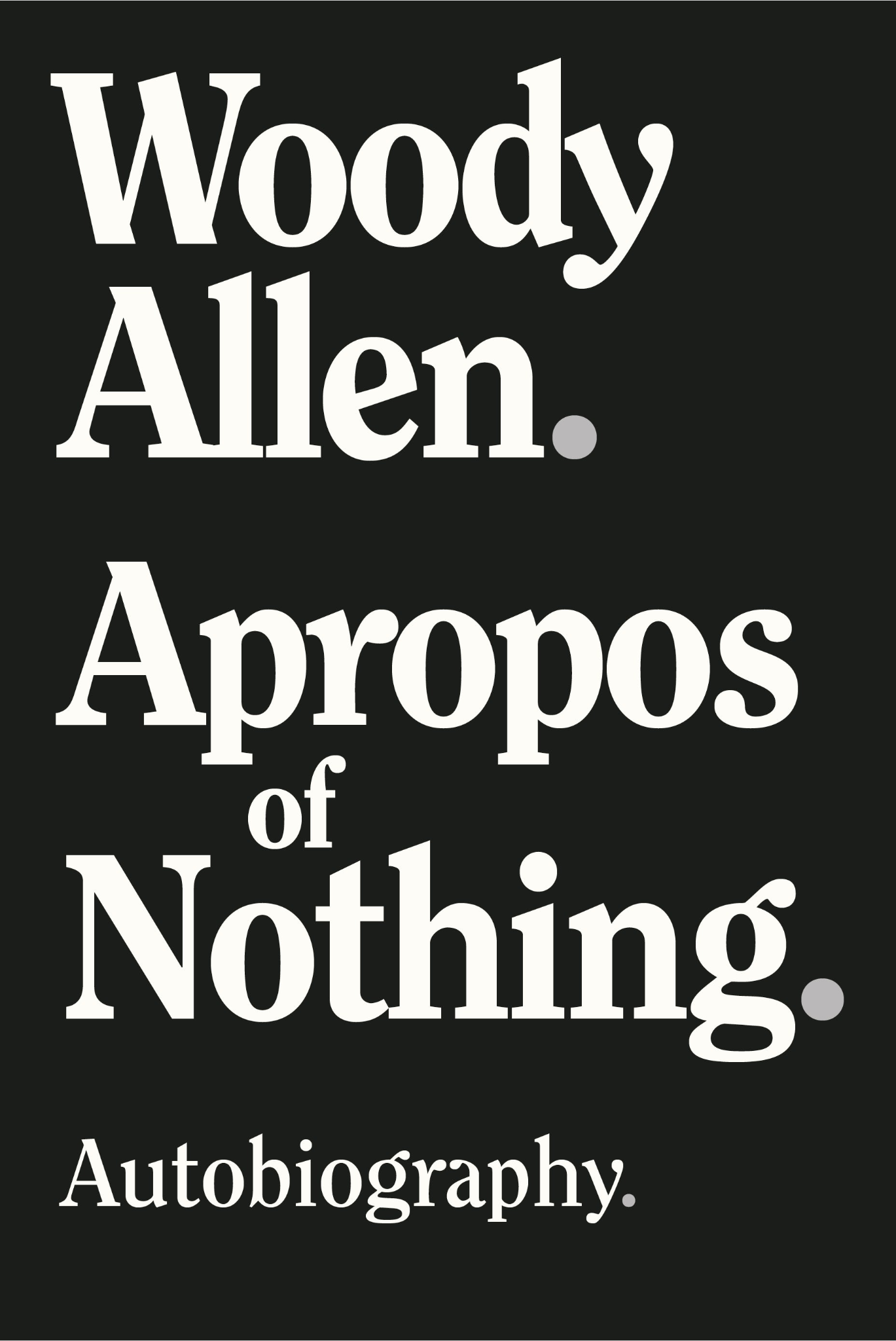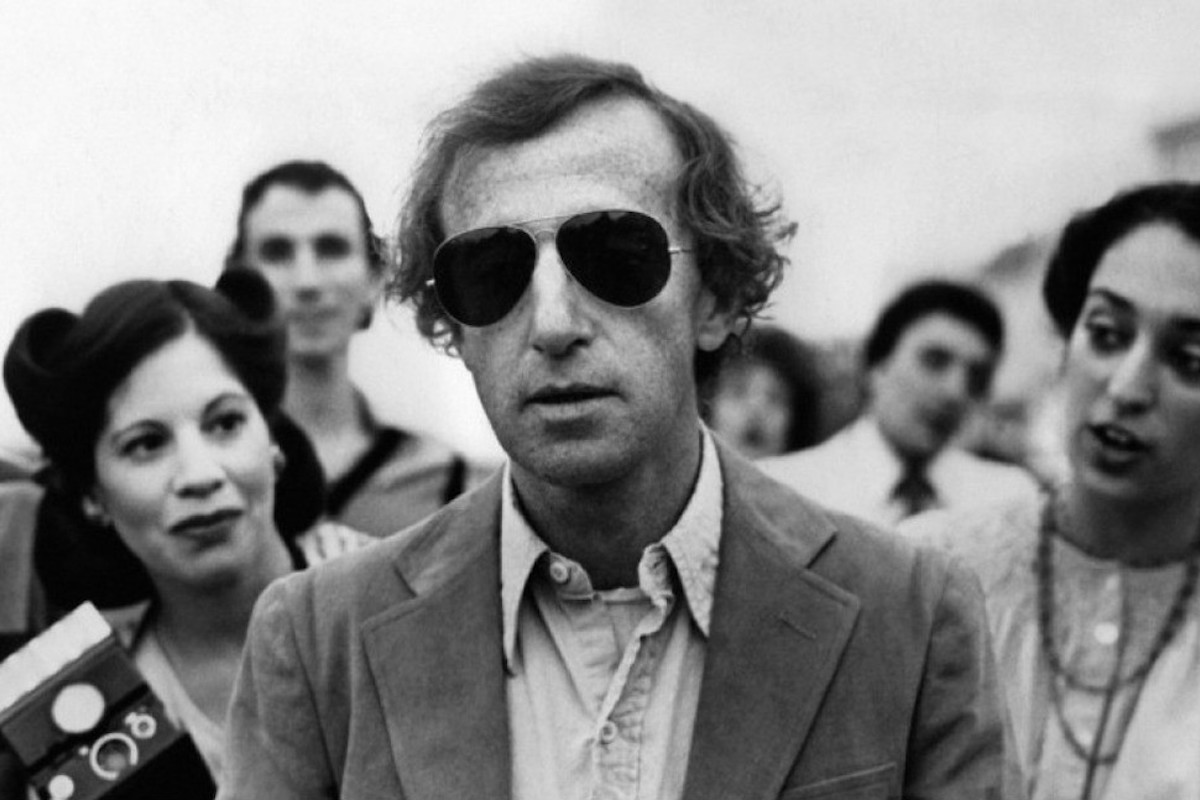Cinema
Tennessee Williams and Woody Allen: Kindred Spirits to Illuminate our Tragicomic Existence
Allen and Williams are united by a sensibility that can be described as tragicomic, even if each inflects it differently.

One of the delights of Woody Allen’s recently released memoir, Apropos of Nothing, is its celebration (all too-brief, alas) of Tennessee Williams. “I always wanted to be Tennessee Williams,” Allen writes. “I grew up idolizing [him]. The movie of Streetcar is for me total artistic perfection… the most perfect confluence of script, performance, and direction I’ve ever seen.”
I wanted to be Tennessee Williams, too, when I discovered his works at age 18. And I’ve been a Woody Allen fan since seeing the Jazz-age romantic fantasy A Purple Rose of Cairo when it was released a year later, in 1985. Yet only with Blue Jasmine (2013), his homage to A Streetcar Named Desire, did I realize how deep his love of Williams flowed. And only now, upon reading his memoir, do I discover how much Allen consciously strove to channel Williams’s techniques.
“I don’t want realism, I want magic,” is how Blanche put it. Looking back on A Purple Rose of Cairo—in which Mia Farrow’s Cecilia so yearns to escape her dismal reality that she summons up a magical world in which a movie character can jump down from the screen to fall in love with her—of course it makes sense.
Allen and Williams are united by a sensibility that can be described as tragicomic, even if each inflects it differently. Williams was drawn toward tragic arcs, and this became his signature style. But as John Gielgud observed long ago, the key to directing him is to release the comedy within his plays. By way of example, Gielgud cites Stanley’s line as he tears through Blanche’s wardrobe and the jewellery spilling out of her trunk: “What is this sister of yours, a deep sea diver?” Williams also did occasionally make the odd foray into explicit comedy, as in A Period of Adjustment, in which two couples (one newlywed) discovered the disillusionments of marriage. It’s no Streetcar. But it wasn’t half bad.
Allen really wanted to be a serious dramatist—but was forced by his gift into comedy. (In his memoir, Allen describes his early career as a gag writer for a succession of TV and stand-up celebrities. The jokes simply flowed out of his teenage brain, and he would sometimes have his day’s allotment scribbled down even before he’d formally started work in the morning.) Once his career had been well-established and he could take more risks, Allen’s early attempts at seriousness (most famously, with Interiors in 1978) met with mixed success. But in some of the wonderful films of the last two decades, the tragic and comic really do fuse coherently. These include Match Point (a great 2005 thriller that also contains a fascinating study of the sociopathic lead), Midnight in Paris (a melancholy 2011 film that, like Purple Rose, has a time-travel motif), Blue Jasmine (2013), Café Society (2016), and the underrated 2017 Wonder Wheel, a story about the grim reality of loss, betrayal, and despair, with Justin Timberlake starring as a lifeguard-poet surveying the superficially joyous revelry of 1950s-era Coney Island.
Wonder Wheel also features Kate Winslet’s Ginny performing Allen’s version of Blanche’s mad scene dressed in an old stage costume. Timberlake’s Mickey is an aging beautiful boy—somewhat wholesome, somewhat rakish—straight out of Williams’s imaginary, making-good company with Chance Wayne (Sweet Bird of Youth) or Alma’s girlhood crush John Buchanan (Summer and Smoke). As upwardly aspiring narrator, Mickey also can be seen as Allen’s version of Tom in The Glass Menagerie. Like Tom, who has, as Williams put it, “a poet’s weakness for symbols,” Mickey self-describes as “a budding dramatist [who] relish[es] melodrama and larger-than-life characters.” The film stands alongside Blue Jasmine as Allen’s most overt tribute to Williams’s influence.
As with Allen’s films—which have generated two best-actress Oscar winners (most famously, Diane Keaton in Annie Hall, but also Cate Blanchett in Blue Jasmine), and four Oscars for best supporting actresses—Williams’s works are treasure troves of great roles for women. The theatrical canon of the second half of the 20th century would be unrecognizably barren without Blanche and Stella, Amanda Wingfield (The Glass Menagerie), Maggie the Cat (Cat on a Hot Tin Roof), Alma (Summer and Smoke), Mrs. Venables (Suddenly Last Summer), and Maxine Faulk and Hannah Jelkes (The Night of the Iguana). Much in the same way, our film culture would be much the poorer without Keaton’s Annie Hall; Hannah, Lee, and Holly (Hannah and Her Sisters), Helen Sinclair (Bullets Over Broadway), Linda Ash (Mighty Aphrodite), and Blanchett’s Jasmine—to name only a few.
Williams has rightly been called a great scene-wright. One of the reasons why his best work was so good is that he would rewrite a scene if, upon completion, it hit the wrong note. Theatre critic John Lahr has observed (including in his essential critical biography of Williams, Mad Pilgrimage of the Flesh), that the Williams archives are filled with abandoned scenes—often exploring plot lines that seem ludicrous in light of the finished play. (There are alternative endings for Streetcar in which Blanche and Stanley marry, for instance.) Williams experimented endlessly with all the possibilities before settling on the right ones.
Allen’s films similarly abound in scenes that we remember for artistic qualities that transcend the constituent dialogue and acting: Jasmine escaping the clutches of the enamored dentist, and then her breakup scene with new beau Dwight (Blue Jasmine); the chilling murder sequence (to the accompaniment of Verdi’s Otello) in Match Point; Michael Caine as Elliot in Hannah planting a passionate kiss on his wife’s sister (Barbara Hershey) while his voiceover has just told the audience, “I’ve got to proceed cautiously.” In his memoir, Allen humbly casts himself as a restless director who moves quickly from scene to scene. But I’d be surprised if his archives didn’t contain drafted possibilities that were never filmed, or that were filmed and then cut. (At the very least, the memoir reveals that he re-shot September in its entirety because he was so dissatisfied with the finished film.)

Williams endlessly rewrote and refashioned some of the same stories and characters—with short stories becoming short plays and then longer plays as Williams got a sense of how much space the narrative needed. (Cat on a Hot Tin Roof emerged from such a metamorphosis.) In Allen’s case, another kind of metamorphosis played out biographically, because he so often appeared in his own works, effectively offering viewers a direct running commentary on the filmmaker’s changing perspectives. This has included often thinly-veiled references to his own mishaps, breakups, erotic and creative failures and betrayals (sometimes, as we learn in Apropos of Nothing, unfolding in the middle of a movie being shot). Thus, the evolution of the “Woody Allen character” from Annie Hall and Manhattan through Hannah, and on to its incarnations by other actors in Celebrity, Midnight in Paris, and A Rainy Day in New York. The autobiographical elements in both Williams’s and Allen’s works are frequently exaggerated, by both critics and audiences, and yet they are both deeply personal writers, their plays and films being the media through which they work out their own yearnings, dilemmas, and obsessions.
“I’m not afraid of death; I just don’t want to be there when it happens,” Allen once told the world. That comic nihilism is a quality Williams shared, even if he never did stand-up or shared the neurotic confessional style that Allen came by through his Jewish-American roots. Consider a late poem written by Williams, titled Life Story, in which two strangers go to bed together and share their secrets, cigarettes in hand: “the two of you lying together in completely relaxed positions like a pair of rag dolls a bored child dropped on a bed.” And then, a dozen lines later, “one of you falls asleep and the other one does likewise with a lighted cigarette in his mouth, and that’s how people burn to death in hotel rooms.”

Apropos of Nothing only reinforces our impression of Allen as a bleak pessimist who uses humour and wordplay to leaven his sense of dread. It’s a vision that was perhaps given its most famous expression in his character Mickey from Hannah, whose reprieve from death by brain tumour precipitates a severe existential crisis. In fact, Allen doesn’t see comedy as the opposite of tragedy, but instead as a sort of “extra tragic” extrapolation of ordinary life. And death—other people’s—is given a minor black-comical role in Apropos of Nothing through his father’s witnessing of an American soldier’s execution for raping a French girl in World War I, and his many narrow escapes from untimely death (and thus Allen’s own escape from non-existence). Later in the book, various suicides thwack the pavement outside one of Allen’s apartments.
Allen has filled his memoir with scenes that are casually cinematic, perhaps because he thinks through cinema’s lens. Like Williams, he drew a lot of his inspiration from great Hollywood films and the radio-play tradition that preceded them. (Though Williams was born in 1911, 24 years before Allen, film was a well-established medium by the time he came of age.) “I am a movie man, and so is Allen,” Tennessee Williams said in 1982. “Our DNAs are oddly similar,” and “I always feel as if all the radio programs of my childhood were somehow placed within the memories of Allen.”
Allen has had a longer twilight than Williams, because he simply has lived longer. (Williams was only 71 when he died, while Allen celebrated his 85th birthday last month.) But even comparing the two men in their respective prime years, they both seem to have failed more often than succeeded—and yet both persevered, despite having internalized their characters’ melancholy understanding of a world in which the fake golden moons of one’s imagination are forever crashing to the stage. As Emmet Ray put it in Sweet and Lowdown: “Sooner or later, everybody’s dreams end up in smoke.” They both comfort the broken dreamers among us, urging us to laugh at ourselves, to get over ourselves, but most of all, to pick our bruised selves up and trundle on, as they did.
Commenting on the subject of Williams’s stories, Gore Vidal said, “Well, there used to be two streetcar lines in New Orleans. One was named Desire and the other was called Cemeteries. To get where you were going, you changed from the first to the second… Tennessee validated with his genius our common ticket of transfer.” Allen has taken us to different destinations, but he’s done so by punching that same ticket.






